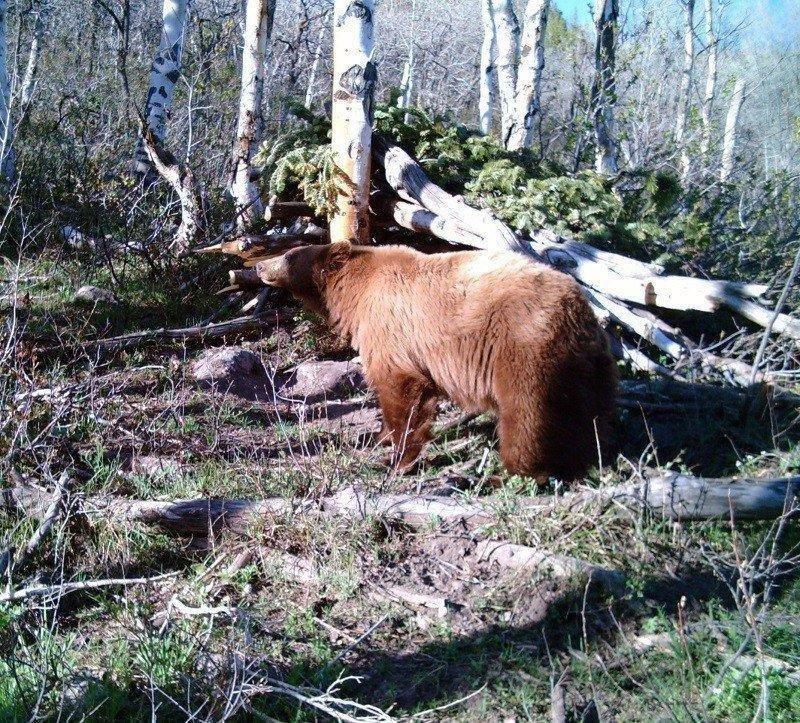DWR Press Release
As Memorial Day weekend nears, DWR provides tips to keep you safe
A fun camping trip can turn into a tragic experience if you do things that lure bears into the area where you’re camping. Fortunately, it’s easy to reduce the chance that a bear comes your way:
· Don’t leave food where a bear can find it.
· Make sure your campsite or cabin area is clean and free of litter.
· Never feed a bear.
Leslie McFarlane, mammals coordinator for the Division of Wildlife Resources, says black bears are doing really well in Utah. Almost all of the areas where people camp in Utah have a population of black bears near them.
McFarlane says bears have an incredible sense of smell. And they’re not shy about eating the same kinds of food people eat. “If you’re camping in a forested area in Utah,” she says, “there’s a good chance a bear is close enough to smell the items in your campsite or cabin area.”
Keep your camp clean
McFarlane says black bears are usually scared of people. “Typically,” she says, “they’ll do anything they can to avoid us.”
That can change quickly, though, if a bear finds food or food scraps in your campsite or cabin area. “When a bear locates food,” she says, “it often becomes aggressive and loses its fear of people.”
So, what’s the secret to keeping bears from visiting your campsite or cabin area? The answer is simple: reduce smells that attract bears. Specifically, McFarlane encourages you to do the following:
Safety tip 1 – Store your food and items that are scented, such as deodorants and tooth paste, in an area where a bear can’t get to them. Storing them in a locked trailer, or locking them in the trunk of your car, are good choices. Storing food and scented items in these areas will reduce the chance that a bear smells them. And, if a bear does makes its way to the area where you’re staying, if it isn’t rewarded with food, it will likely move on.
Safety tip 2 – Keep your cooking grill clean. After you’re through eating, clean utensils and anything else that was used to prepare the food or eat it. Also, don’t dump oil or grease from pots or pans onto the ground. Put the oil or grease in a container, and take it home with you.
Safety tip 3 – Don’t toss food scraps and other trash around your campsite or cabin area. Instead, put it in trash bags, and take it home with you. Keep your campsite or cabin area clean.
Safety tip 4 – Never feed a bear.
Bear safety tips
More tips on staying safe in bear country, including what to do if you encounter a bear while hiking, are available at www.wildawareutah.org/utah-wildlife-information/bears and www.wildlife.utah.gov/dwr/learn-more/bear-safety.html.
A video about bear safety is also available on the DWR’s YouTube channel. The video shows what a bear will do when it finds a campsite that isn’t clean. You can watch the video at https://bit.ly/26U1Q7S.
You’ll be helping others too
If you follow these rules, McFarlane says you’ll not only help yourself, you’ll help other people. And you’ll help the bears too.
She says a bear might not visit your campsite while you’re there. But any food you leave out, or litter you leave behind, could bring a bear to that same area after you leave. And that could create a serious problem for those who camp in the area after you. Also, if a bear threatens people, it often has to be euthanized.
“Please keep others and the bears safe,” she says. “Store your food, and keep your campsites and cabin areas clean.”


